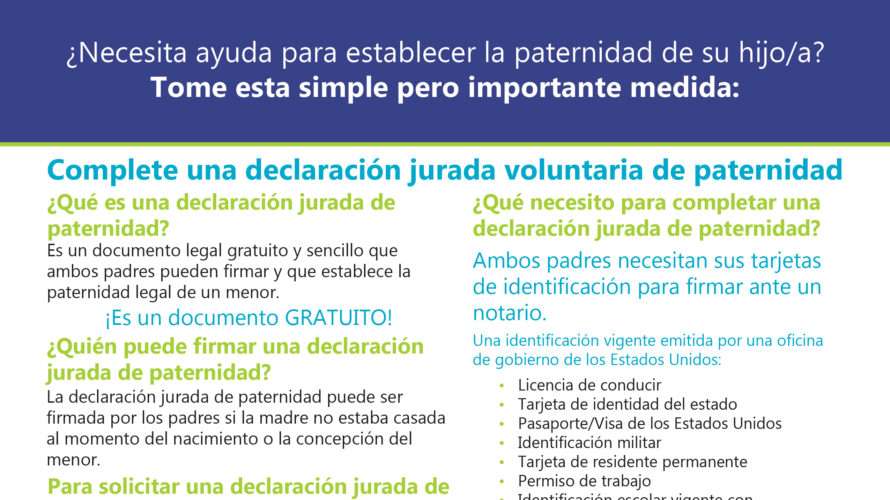Over the past few months, the Voluntary Paternity Affidavit (VPA) program has made substantial efforts to improve accessibility for Spanish speaking individuals. DHS translation services have been translating VPA materials, and VPA Outreach Coordinator Amy Peters has worked with the Bureau of Health Statistics (BHS) and colleagues from CWRTP to develop Spanish versions. The VPA program previously offered some materials in both languages, but the program has roughly doubled its Spanish language offerings to include most of what was previously only available in English.
One of the most complex and challenging accomplishments was creating a Spanish version of the paternity affidavit form itself to be used for practice. The form was meticulously translated so Spanish speakers can see a version of it in their native language before filling out the official form to be submitted. Steps are also being taken to distribute the Spanish practice form in a way that ensures it cannot be accidentally submitted in lieu of the official English form.
Another notable addition is a Spanish version of the VPA informational video. Amy Peters worked with DHS’s translation services to translate the script from the English informational video. Service Training team leader Rachel Vos Carillo graciously volunteered to record the voiceover for the Spanish version of the video, and Miles Tritle provided closed captioning. It should be noted that the San Diego County Department of Child Support Services provided the footage and project files for the original video as well. The multi-organizational effort resulted in an excellent resource for Spanish speakers seeking information about establishing paternity.
New parents may now see Spanish materials relating to the VPA at hospitals and when they receive birth certificates. It is our hope that offering information in multiple languages will increase the effectiveness of the VPA program and allow more Iowans to understand laws and rights surrounding paternity. We would like to thank our collaborators at DHS and BHS for their continued support in our efforts to make these materials more accessible.

